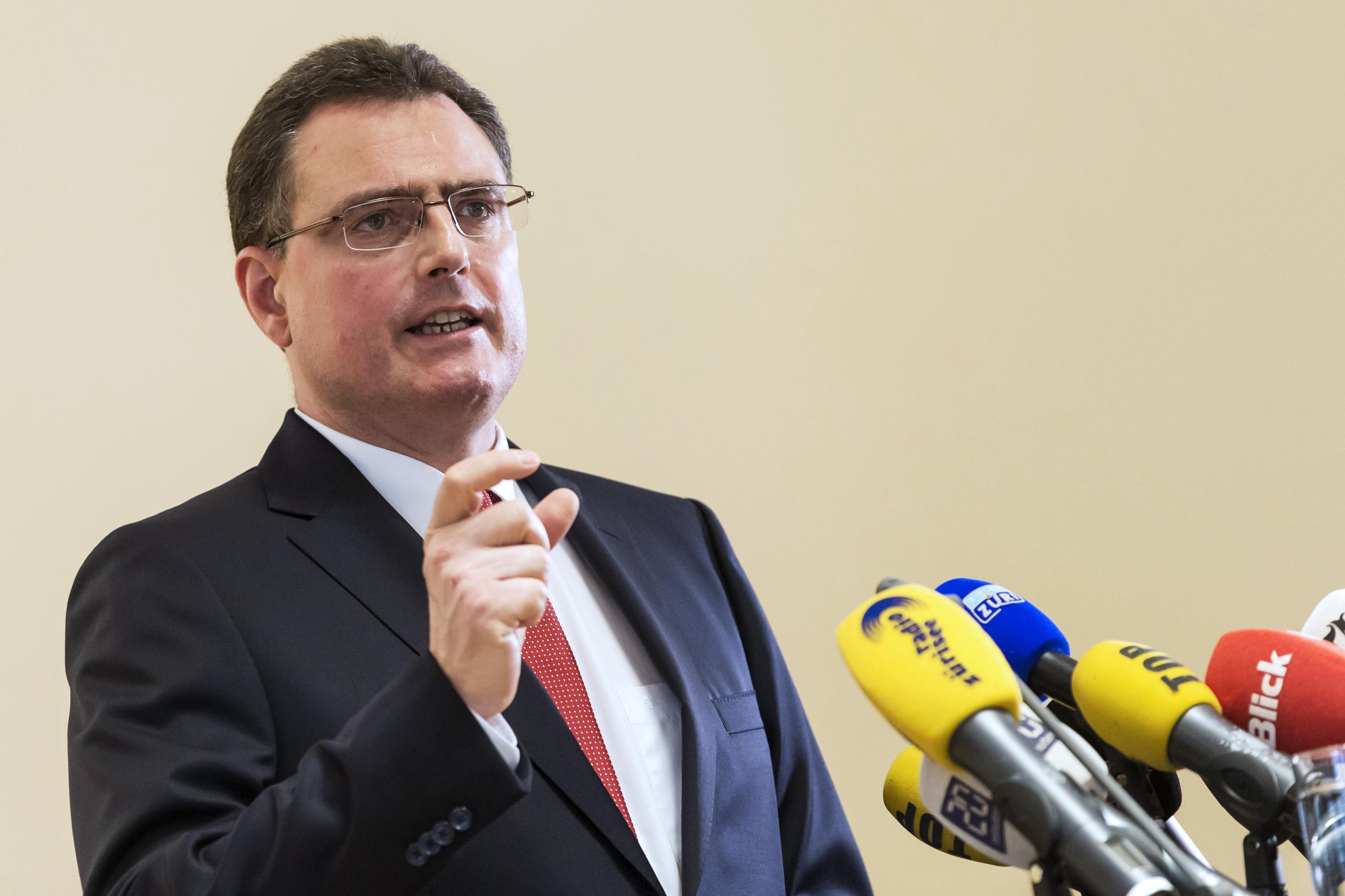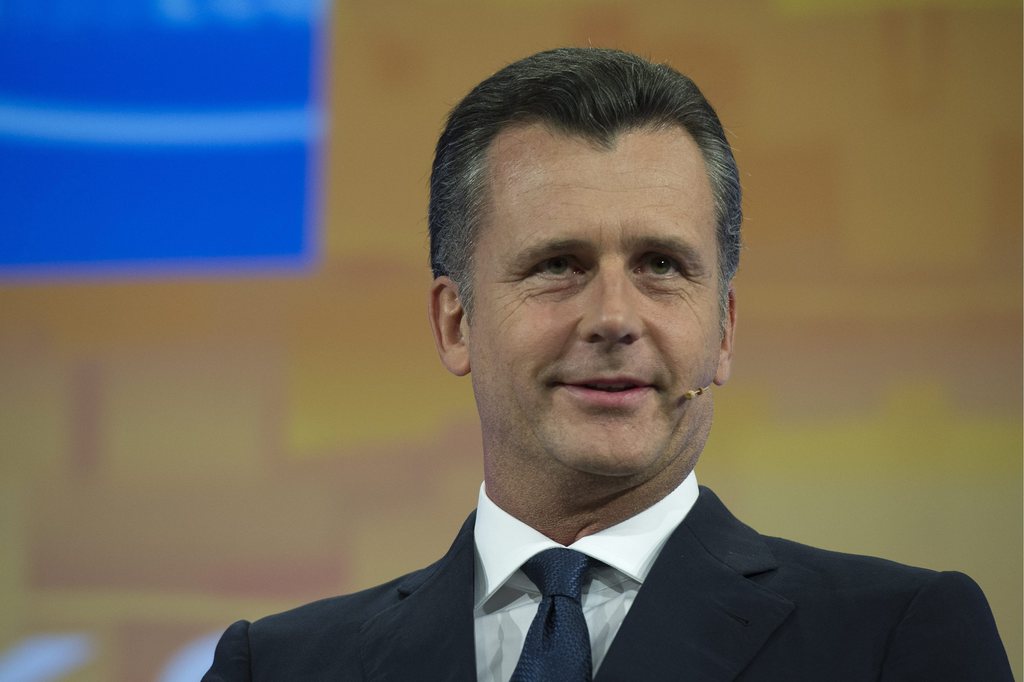SNB outlines life without franc-euro peg

Swiss central bank executives have gone public to defend their abandonment of the euro peg. They appealed to the public not to hoard cash under the mattress and insisted that they are independent of both political interference and emotional hubris.
Kicking off a one-hour press conference in Zurich on Thursday, Swiss National Bank (SNB) Chairman Thomas Jordan said it would have cost hundreds of billions of francs to maintain the CHF1.20 franc-euro exchange rate ceiling beyond January 15.
It is not the first time the SNB has publically defended its post-January 15 policy, but the presentation did constitute the most detailed predictions of life after the abandonment of the euro peg.
The reason was the euro’s sudden decline in the latter half of last year. The euro had lost a quarter of its May 2014 value against the dollar when the SNB decided to pull the plug on the franc-euro peg. Keeping the franc in line with the rapid fall of the euro, by buying up enough euros to stabilise the single currency’s value, would have had serious negative consequences.
“Such an expansion [of the SNB’s monetary base] would have severely impaired the SNB’s future ability to conduct monetary policy and substantially jeopardised the fulfilment of its mandate in the long term,” Jordan said.
“It was a necessary decision when you compare the potential benefits and costs of maintaining the euro peg,” Felix Brill, chief economist at Wellershof & Partners consultancy, told swissinfo.ch. “As the SNB’s currency reserves swelled, the risk of future losses were too high to continue. Building the monetary base by printing more money to buy euros would also have brought inflationary risks and the threat of negative capital [technical bankruptcy of the SNB].”
Growth pared back
Jordan acknowledged that the abandonment of the franc’s defence has presented the Swiss economy with “great challenges”. Swiss exports to its main trading partner, the eurozone, have increased in price by 15%, while tourists coming to Switzerland are facing the same hike in their hotel bills.
As a result, the SNB has slashed its gross domestic product growth forecast this year by half, from the 2% it predicted in December to just under 1%. “In the past, entrepreneurs and employees have always found ways to deal with a strong Swiss franc, thereby demonstrating, time and time again, their great flexibility,” said Jordan. “Nevertheless, every appreciation represents a fresh challenge with an uncertain outcome.”
A report by Credit Suisse bank this week set out a fair franc value of CHF1.24 against the euro. The franc was already over-valued at CHF1.20 against the euro just before the SNB stopped defending the exchange rate ceiling in January, the report claimed.
Some economic sectors were hit harder than others when the exchange rate fell to around CHF1.05. This exchange rate is 50% over-valued for the textile, printing, plastics, metal products and watch industries, according to Credit Suisse. Chemicals, food and metal production firms have the least to fear, the report said.
On Wednesday, parliament debated the issue at some length without coming to any clear conclusion. “Hot air over the strong franc debate” ran a headline in the Neue Zürcher Zeitung newspaper. The article complained that politicians were more concerned with scoring points against other parties during election year than finding sensible compromise solutions.
Parties on the right supported the SNB’s January decision and argued for less government regulation, while left-leaning parties called for state intervention to help the economy and even pressure on the central bank to resume its euro peg.
Riskier returns
The central bank has been under intense political pressure ever since it embarked on its CHF1.20 euro peg in 2011. The pressure spilled out of the parliament last autumn during a failed national referendum to force the SNB to raise its gold holdings.
Some commentators have suggested this may have influenced the central bank’s decision in January.
But Jordan insisted that the bank had always kept a clear head well above political doubters and “emotional” media headlines. Criticism of its policies from various quarters, both before and after the euro peg policy, were “no theme” for decision makers at the central bank, he said during Thursday’s press conference.
Jordan also defended the central bank’s renewed commitment to negative interest rates, keeping the three-month Libor target range between -1.25% and -0.25%. Jordan pointed out that deflation (inflation forecast at -1.1% this year and -0.5%% in 2015) would dampen the effects of negative interest rates by increasing people’s spending power.
“In other words, in terms of real returns, there have been times when saving was less worthwhile than it is now,” Jordan said as he urged people not to stockpile cash by withdrawing savings from banks.
Two recent reports by UBS bank have highlighted how negative interest rates could fuel a real estate bubble by attracting more money into property, and how institutional investors, such as pension funds, could lose money on an SNB policy to charge 0.75% on central bank deposits. “In the current environment, there are no real alternatives to our measure,” said Jordan.
But Felix Brill worries that some pension funds might seek riskier means to plug widening underfunding holes. “If everyone is running higher risks [by taking out alternative investments, for example] then those risks could present a big problem if they become reality,” he told swissinfo.ch.

In compliance with the JTI standards
More: SWI swissinfo.ch certified by the Journalism Trust Initiative




You can find an overview of ongoing debates with our journalists here. Please join us!
If you want to start a conversation about a topic raised in this article or want to report factual errors, email us at english@swissinfo.ch.